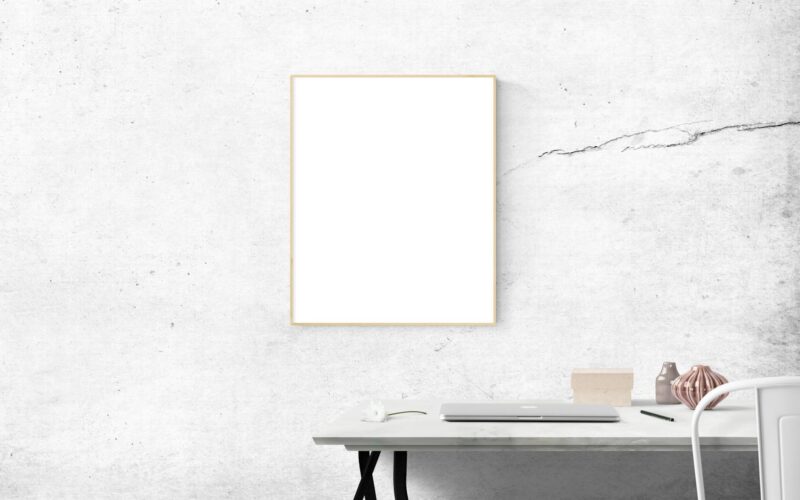Understanding the Nature of Distractions
To effectively deal with distractions, it’s essential to first understand what they are and how they affect our daily routines, particularly our morning rituals. Distractions can be physical, such as noise, clutter, or interruptions from family members, or psychological, including racing thoughts or worries about the day ahead. The brain’s tendency to shift focus can make it hard to engage fully in morning routines, which are crucial for setting a productive tone for the day.
Research shows that the human brain can lose focus after just a few minutes of distraction. In fact, it takes an average of 23 minutes to refocus on a task once interrupted. In a fast-paced world filled with notifications from smartphones, social media updates, and emails, our morning rituals often fall victim to these digital interruptions. Recognizing the factors contributing to these distractions is the first step in combatting them.
Moreover, understanding your unique distractions—whether they come from technology or your environment—will empower you to create an action plan tailored to your needs. Taking time to reflect on what typically derails your focus can significantly enhance your ability to minimize these interruptions.
Creating a Distraction-Free Environment
One of the most effective ways to minimize distractions during your morning ritual is to cultivate an environment conducive to focus and tranquility. Start by identifying the spaces in your home that are most susceptible to disturbances and redesign them for better productivity.
Decluttering your space can play a significant role in creating a more serene environment. Too much visual stimuli can lead to cognitive overload, making it difficult to concentrate. Keep only the essentials in your immediate surroundings—an organized, tidy area can help calm your mind, allowing for a more enjoyable morning routine.
Consider also the sensory elements of your environment. For example, if you find that noise is a major distraction, invest in noise-canceling headphones or utilize sound machines to produce white noise. Moreover, the use of aromatherapy—like lavender or citrus scents—can aid in creating a peaceful atmosphere conducive to focus.
Lighting is another crucial aspect; natural light can uplift your mood and energy levels, while harsh fluorescent lighting can be jarring and counterproductive. If your space allows, make use of soft, warm shades or adjust your curtains to maximize natural light exposure during your mornings.
Establishing a Consistent Morning Routine
A well-structured morning routine can help decrease the chances of being derailed by distractions. Consistency builds habits, and when you perform the same actions in the same order each day, your brain forecasts what’s next, thereby minimizing cognitive load.
Start by defining the components of your ideal morning ritual. This can include activities such as meditation, journaling, exercise, or reading—anything that sets a positive tone for your day. Once you identify these activities, structure them into a routine.
For example, consider this simple structure: wake up, hydrate, engage in light stretching or exercise, meditate, have breakfast, then review your daily goals. The predictability of this routine creates psychological comfort, making it easier to enter a focused state.
Moreover, implementing time-blocking within your morning schedule can ensure you dedicate specific periods to different activities without encroaching on each other. Keep in mind that even minor modifications can yield significant results—adjusting your wake-up time by just 15 minutes can provide a necessary buffer for a more relaxed, focused morning.
Limiting Digital Distractions
In today’s digital age, technological distractions are among the most challenging interruptions to overcome. Morning rituals can easily morph into scrolling through social media or responding to emails, fundamentally undermining your intentions for a focused start to the day.
To combat this, establish “digital detachment” moments. This could mean committing to 30 minutes after waking up without any screens. Instead of reaching for your phone, engage in other mindful activities, such as sipping tea or going for a brief walk.
You can also utilize technology to your advantage by employing apps that promote focus. For example, apps can limit access to distracting websites during designated times. If you need your phone to check the time or set alarms, activate “Do Not Disturb” modes to minimize interruptions.
Regularly reviewing and curating your digital subscriptions can significantly reduce the influx of distractions. Unsubscribe from unnecessary email lists, mute notification alerts, and consider creating a separate workspace on your electronic devices dedicated solely to tasks.
Practicing Mindfulness and Self-Compassion
Integrating mindfulness into your morning ritual can be transformative in managing distractions. Mindfulness encourages you to focus on the present moment and can heighten awareness of when your attention starts to drift.
Begin each morning with a few minutes of mindful breathing. This exercise allows you to ground yourself and shift your attention away from racing thoughts or external disturbances. Meditation apps can provide guided sessions that help you get started if you’re unsure where to begin.
In addition to mindfulness, practicing self-compassion is vital in your efforts to manage distractions. It’s easy to be critical of yourself when you find it difficult to concentrate. Instead, recognize that distractions are a common human experience. Be gentle with yourself and remember that every day offers a new blank slate to try again.
If you find that your mind wanders, adopt a non-judgmental approach—acknowledge the thought and kindly redirect your focus back to your ritual. Over time, this practice of self-compassion can improve your resilience against distractions, helping you cultivate a more positive morning experience.
Incorporating both mindfulness and self-compassion allows for a more holistic approach to recognizing and managing distractions. These practices create a supportive inner dialogue and a welcoming environment, enriching your overall well-being.
Understanding the Impact of Diet on Focus
A well-balanced diet plays a crucial role in cognitive function and focus. Foods rich in omega-3 fatty acids, antioxidants, and vitamins can positively affect brain health and enhance concentration levels. Incorporating foods like fatty fish, berries, and nuts into your morning routine can provide the necessary nutrients to fuel your brain for the day ahead. In contrast, a diet high in sugar can lead to energy spikes followed by crashes, resulting in difficulty in maintaining focus. It’s essential to consume a nutritious, balanced breakfast that not only satisfies hunger but also promotes sustained energy and concentration throughout the morning.
The Role of Exercise in Enhancing Focus
Physical activity can significantly boost brain function by increasing blood flow and oxygen supply to the brain. Engaging in morning exercise, whether through yoga, jogging, or a quick workout, can release endorphins and enhance mood. This boost in physical well-being can lead to improved concentration and reduced feelings of stress or anxiety. Even short bursts of physical activity can have immediate benefits for mental clarity. Thus, integrating at least a short session of exercise into one’s morning routine can set a positive precedent for enhanced focus and productivity throughout the day.
The Importance of Setting Intentions
Setting specific daily intentions can create a mental framework to guide your actions, particularly during the morning routine. By taking a moment to reflect on what you hope to achieve for the day—whether it’s focusing on work tasks, personal goals, or relationships—you foster a more purposeful approach to your activities. This clarity can enhance your ability to stay focused and avoid getting sidetracked by distractions. Developing the habit of stating your intentions can lead to greater mindfulness, helping you remain anchored to your goals amidst the chaos of daily life.
Creating Time Buffers to Reduce Stress
Many people face distractions due to a rushed or disorganized morning. Establishing time buffers in your schedule can alleviate stress by providing additional time for your morning activities. This approach also allows for unexpected interruptions, which are inevitable. Instead of waking up with just enough time to complete your routine, consider allowing an extra 15-30 minutes. This strategy can transform your morning into a more deliberate and calm experience, empowering you to engage fully in your rituals. Time buffers can foster a mindset conducive to focus, as you won’t feel the pressure of time while trying to stay productive.
Utilizing Visualization Techniques for Enhanced Focus
Visualization techniques can enhance mental clarity and focus by allowing you to see your goals and plans clearly in your mind. This practice can involve imagining your ideal morning routine, setting specific goals for the day, or picturing yourself successfully completing tasks. By visualizing your activities, you create a mental image that guides your actions, making it more likely that you’ll stay on track. Incorporating visualization exercises into your morning rituals can serve as a powerful motivational tool, facilitating greater awareness and focus amid distractions.
—
In summary, creating a distraction-free morning involves understanding the underlying causes of distractions, establishing a structured routine, and optimizing both the physical and mental environment. Factors such as diet, exercise, intention setting, and visualization play significant roles in improving focus and productivity. By integrating mindfulness and self-compassion, individuals can foster resilience against distractions and cultivate an enriching morning ritual that paves the way for success throughout the day. The strategies discussed provide a holistic view, allowing you to tailor your approach to fit your unique needs and circumstances.
The foundation of an effective morning routine lies in mindful practices that promote focus, clarity, and intentionality, ultimately leading to a more fulfilling day.
#Dealing #Distractions #Strategies #Minimizing #Interruptions #Morning #Ritual
















